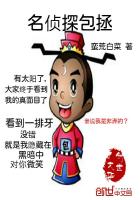It was this group that found least firm ground in the then existing conditions.
At the bottom of all the classes, save the last one, was the huge exploited mass of the nation, the peasants.It was the peasant who carried the burden of all the other strata of society: princes, officialdom, nobility, clergy, patricians and middle-class.Whether the peasant was the subject of a prince, an imperial baron, a bishop, a monastery or a city, he was everywhere treated as a beast of burden, and worse.If he was a serf, he was entirely at the mercy of his master.If he was a bondsman, the legal deliveries stipulated by agreement were sufficient to crush him;even they were being daily increased.Most of his time, he had to work on his master's estate.Out of that which he earned in his few free hours, he had to pay tithes, dues, ground rents, war taxes, land taxes, imperial taxes, and other payments.He could neither marry nor die without paying the master.Aside from his regular work for the master, he had to gather litter, pick strawberries, pick bilberries, collect snail-shells, drive the game for the hunting, chop wood, and so on.Fishing and hunting belonged to the master.The peasant saw his crop destroyed by wild game.The community meadows and woods of the peasants had almost everywhere been forcibly taken away by the masters.And in the same manner as the master reigned over the peasant's property, he extended his wilfulness over his person, his wife and daughters.He possessed the right of the first night.Whenever he pleased, he threw the peasant into the tower, where the rack waited for him just as surely as the investigating attorney waits for the criminal in our times.Whenever he pleased, he killed him or ordered him beheaded.
None of the instructive chapters of the Carolina which speaks of "cutting of ears," "cutting of noses," "blinding," "chopping of fingers," "beheading,""breaking on the wheel," "burning," "pinching with burning tongs," "quartering,"etc., was left unpractised by the gracious lord and master at his pleasure.
Who could defend the peasant? The courts were manned by barons, clergymen, patricians, or jurists, who knew very well for what they were being paid.
.Not in vain did all the official estates of the empire live on the exploitation of the peasants.
Incensed as were the peasants under terrific pressure, it was still difficult to arouse them to revolt.Being spread over large areas, it was highly difficult for them to come to common understanding; the old habit of submission inherited from generation to generation, the lack of practise in the use of arms in many regions, the unequal degree of exploitation depending on the personality of the master, all combined to keep the peasant quiet.It is for these reasons that, although local insurrections of peasants can be found in mediaeval times in large numbers, not one general national peasant revolt, least of all in Germany, can be observed before the peasant war.Moreover, the peasants alone could never make a revolution as long as they were confronted by the organised power of the princes, nobility and the cities.Only by allying themselves with other classes could they have a chance of victory, but how could they have allied themselves with other classes when they were equally exploited by all?
At the beginning of the Sixteenth Century the various groups of the empire, princes, nobility, clergy, patricians, middle-class, plebeians and peasants formed a highly complicated mass with the most varied requirements crossing each other in different directions.Every group was in the way of the other, and stood continually in an overt or covert struggle with every other group.A splitting of the entire nation into two major camps, as witnessed in France at the outbreak of the first revolution, and as at present manifest on a higher stage of development in the most progressive countries, was under such conditions a rank impossibility.Something approaching such division took place only when the lowest stratum of the population, the one exploited by all the rest, arose, namely, the plebeians and the peasants.The tangle of interests, views and endeavours of that time will be easily understood when one remembers what a confusion was manifested in the last two years in a society far less complicated and consisting only of feudal nobility, bourgeoisie, petty-bourgeoisie, peasants and proletariat.
[ To part 2 ]














